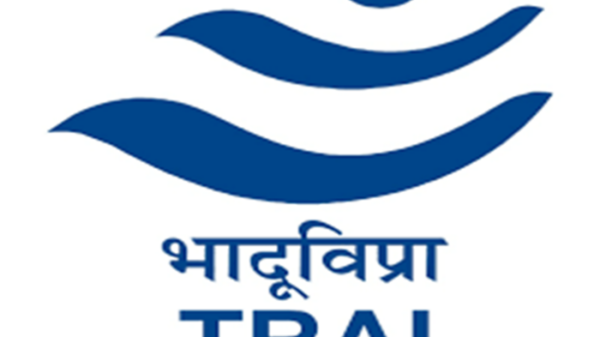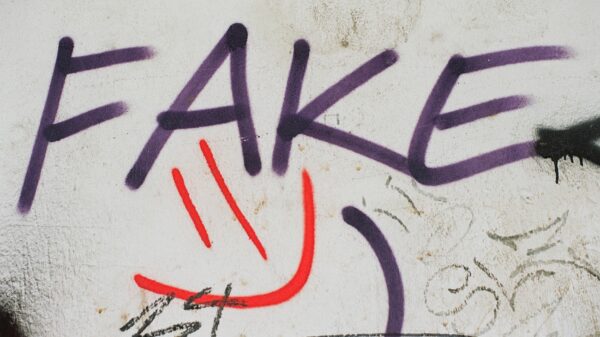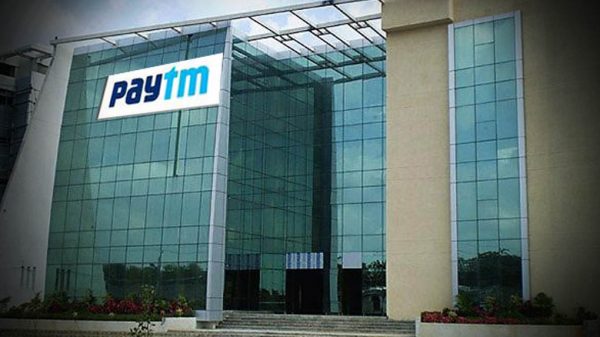Regulation of medical devices as a separate category and not as a drug have finally been laid out under a draft ‘Drugs, Medical Devices and Cosmetics Bill, 2022’ released by the Ministry of Health and Family Welfare for public consultation. Released on July 8th, the bill also proposes creating a technical advisory board for the same, State and Central testing labs for medical devices, allowing the central government to make rules regulating online pharmacies, appointing medical devices officers to look at clinical trials, requiring licenses for sale (even online) of devices, and much more.
Below we have summarised the bills provisions related to the regulation of medical devices.
Why it matters? The draft bill proposes a significant shift in the currently regulatory regime for medical devices, under which it is considered among one of the four categories of ‘Drugs’ defined in the Drugs and Cosmetics Act, 1940. Separate regulation of medical devices has been a demand from the industry and government think tank NITI Aayog. This becomes especially important also as the use of such devices might get an impetus under Indian government’s health digitisation project (Ayushman Bharat Digital Mission) which plans on conducting integrations with ‘IoT and other devices like wearables’ for recording health data. Further, there is a need for some direction in terms of regulation of online pharmacies.
Comments have been invited on the draft bill until August 16th and can be sent by email to drugsdiv-mohfw@gov.in or by post to the Under Secretary (Drugs Regulation) at the MoHFW.
Never miss out on important developments in tech policy, whether in India or across the world. Sign up for our morning newsletter, with a “Free Read of the Day”, to experience MediaNama in a whole new way.
How are ‘Medical Devices’ defined under the bill?
The draft defines medical devices as the following:
“All devices including an instrument, apparatus, appliance, implant, material or other article, whether used alone or in combination, including a software or an accessory, intended by its manufacturer to be used specially for human beings or animals which does not achieve the primary intended action in or on human body or animals by any pharmacological or immunological or metabolic means, but which may assist in its intended function by such means for one or more of the specific purposes of,-
(i) diagnosis, prevention, monitoring, treatment or alleviation of any disease or disorder;
(ii) diagnosis, monitoring, treatment, alleviation or assistance for, any injury or disability;
(iii) investigation, replacement or modification or support of the anatomy or of a physiological process;
(iv) supporting or sustaining life;
(v) disinfection of medical devices;
(vi) control of conception;
(b) in-vitro diagnostic device which is a reagent, reagent product, calibrator, control material, kit, instrument, apparatus, equipment or system, whether used alone or in combination thereof intended to be used for examination and providing information for medical or diagnostic purposes by means of examination of specimens derived from the human bodies or animals”
What are the provisions for regulating such devices?
The bill empowers the Central government, with or without consultation with the technical advisory board, to create rules governing medical devices in the following ways:
1. Setting standards for devices: Quality, safety and performance standards for such devices
2. Rules regarding licensing and sale of devices: How licenses for import, manufacture, stocking, distribution etc. of medical devices will be issued and revoked, and the categories of devices for whom licenses would be required. This is along with creating rules for the exceptions for the same. Thus cases which won’t require a license, such as when a small quantity of devices are imported for test, analysis or examination.
Along those lines, the rules will also be made on ‘the manner of regulating online sale or distribution or offer for sale of the medical device.’ and how such devices will be assessed, verified, and certified by ‘notified bodies’.
3. Powers of Medical Device and Medical Device Testing Officer: Under the bill, State and Central governments can appoint Medical Device and Medical Device Testing Officers. Their duties, qualifications, and how they will exercise their duties shall be governed through rules, the bill says. In its present form, the bill provides the Medical Devices Officer with certain powers to check the conditions of clinical investigations as well as manufacturing, sale, import, etc. of medical devices while the Medical Devices Testing Officer can assist the former in testing any devices they feel violate the bill.
4. Regulations related to ‘clinical investigations’: The manner in which permission will be given for ‘clinical investigation’ of a medical device, by the Central Licensing Authority i.e., the Drugs Controller General of India. The bill says “clinical investigation” means the systematic study of an investigational medical device in or on human participants to assess its safety, performance or effectiveness.
Such rules will also specify the records, documents, etc that will need to be kept in relation to such clinical investigation, and how compensation and penalties will be decided for clinical investigations that violate the law or the conditions of their permissions.
Apart from these, the bill also makes provisions for the government and the board to together make rules on how medical devices will be labelled, packaged, their details will be described,when it can be established that it has cured an ailment, and so on.
Conditions governing clinical investigations:
The bill specifies that any clinical investigations for devices have to be in line with the conditions set out in the permission given for it.
In case of a violation of the same, the Drugs Controller General of India can take the following actions, after issuing a notice to the violating party as to why action should not be taken against them:
- Issue a warning letter
- Ask the study to be discontinued
- Suspend or cancel the permission for it
- Debar the investigator, sponsor, subsidiaries, etc. from any other investigations.
Further, the bill also lays out that a penalty between Rs 50,000 to 2 Lakh could be levied in case such clinical investigations are carried out in violation of the provisions of Bill. Meanwhile conducting a trial without permission itself could lead to a fine between Rs 3 to 6 Lakh, the bill says.
There are also provisions for compensation and medical aid in case of an injury or death of a participant due to their involvement in such an investigation.
“Where death of a participant is related to clinical investigation and is attributable to the use of an investigational medical device, the person, sponsor, clinical research organisation, any other organisation or investigator permitted under sub-section (1) of section 139 shall provide to the legal heir of that participant, such compensation in such manner as may be prescribed,”
A failure to give compensation can lead to imprisonment of up to a year or a fine, twice the amount of the compensation.
Medical device testing centres at State and Central levels
The bill makes provisions for the creation of ‘Medical Devices Testing Centres’. These shall be created by a notification by the respective State or Central government, to carry out the following responsibilities:
Central Medical Devices Testing Centres:
“(a) testing and evaluation of medical devices;
(b) functioning as an appellate centre;
(c) carrying out other functions assigned,
in such manner as may be prescribed”
State Medical Devices Testing Centres:
“(a) testing and evaluation of medical devices;
(b) carrying out other functions assigned
in such manner as may be prescribed”
More details of their responsibilities have not been mentioned in the bill.
The constitution of the Medical Devices Technical Advisory Board
The bill also makes provisions for the creation of a board called the ‘Medical Devices Technical Advisory Board’ to advise the Central and State Governments on matters pertaining to regulation of medical devices. This can also have further subcommittees, constituted by the board members, however whose members can be external to the board as well.
According to the bill, the manner of the board’s functioning will be prescribed later. However it would comprise of the following 21 individuals:
(i) Director General of Health Services, Chairperson, ex officio,
(ii) Drugs Controller General, Member Secretary, ex officio;
(iii) One person to represent the Department of Atomic Energy, Government of India, not below the rank of a Deputy Secretary to the Government of India dealing with technical matters of medical devices;
(iv) One person to represent the Department of Science and Technology, Ministry of Science and Technology, Government of India, not below the rank of a Deputy Secretary to the Government of India dealing with technical matters of medical devices;
(v) One person to represent the Ministry of Electronics and Information Technology, Government of India, not below the rank of a Deputy Secretary to the Government of India dealing with technical matters of medical devices;
(vi)One person to represent the Bureau of Indian Standards established under section 3 of the Bureau of Indian Standards Act, 2016, not below the rank of a Deputy Secretary to the Government of India;
(vii)One person to represent the Defence Research and Development Organisation, Ministry of Defence, Government of India, not below the rank of a Deputy Secretary to the Government of India dealing with technical matters of medical devices;
(viii) One person, to be nominated by rotation by the Central Government, from amongst persons who are in charge of Central medical devices testing centres;
(ix)Two experts, to be nominated by rotation by the Central Government, from amongst persons who are in charge of medical devices control in the State Governments;
(x)One expert, to be nominated by rotation by the Central Government, from amongst persons who are in charge of State medical devices testing centres;
(xi) One expert, to be nominated by the standards setting body, as may be constituted, by or with the approval of, the Central Government;
(xii) One expert, to be nominated by the Central Government, from amongst recognised technical educational institutions, in the field of biomedical technology;
(xiii) One expert, to be nominated by the Central Government, from amongst recognised technical educational institutions, in the field of biomaterial or polymer technology;
(xiv)One pharmacologist, to be nominated by the Central Government, from amongst recognised medical or research institutions, in the field of medical devices;
(xv) One expert, to be nominated by the Central Government, from amongst persons involved in conduct of the clinical investigation in recognised medical or research institutions; and
(xvi) Two experts, to be nominated by the Central Government, from the medical device industry including in-vitro diagnostics industry; and
(xvii) Three experts from the field of medical, surgical or dentistry practises, to be nominated by the Central Government, from Central Government or State Government Institutions.
According to the bill, these would hold the position for a term of 3 years and cannot have more than 2 consecutive terms on the board.
Creation of a consultative committee on drugs, cosmetics and medical devices
Lastly, the bill also makes provisions for the creation of a ‘Consultative Committee on Drugs, Cosmetics and Medical devices’. This would advise the Central and State Governments, the Drugs Technical Advisory Board and the Medical Devices Technical Advisory Board on ‘any matter tending to secure uniformity in the country in the administration of this Act and the rules made thereunder,’ the bill says.
The Drugs Controller General of India would be the chairperson of the committee, while the rest of the members would include 2 representatives of, and nominated by, the central government and one representative of, and nominated, by each state government. The State’s officers would be in-charge of, or dealing with the matters relating to regulation of drugs, medical devices and cosmetics in the respective State.
This post is released under a CC-BY-SA 4.0 license. Please feel free to republish on your site, with attribution and a link. Adaptation and rewriting, though allowed, should be true to the original.
Also read:






























